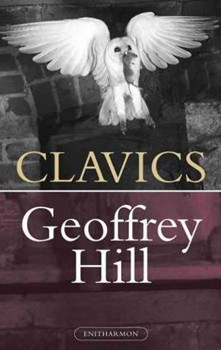发布时间: 2017年01月05日

『杰弗里•希尔先生的新诗歌作品虽然难懂,但值得一读。』
Mr Difficult
晦涩先生
Apr 14th 2011 | From The Economist

GEOFFREY HILL, who became the Oxford Professor of Poetry after Ruth Padel was forced suddenly to resign in 2009, is generally acknowledged to be difficult. His poetry—rich in allusions, unattributed quotations and taking great delight in the obscurity of words—requires multiple dictionaries to hand, leading it to being far more studied than read.
Born in Worcestershire in 1932, the son of a police officer, Mr Hill is considered by many to be one of Britain’s greatest living poets. But aspects of his work do not lend themselves to popular appeal. The tendency of his poems to focus on the anxiety of an agnostic faith has made him an easy target for parody. His poetry, like his celebrated criticism, demands a certain austerity and intensity; for the reader to be seemingly as disciplined and as educated as the poet.
On first reading, Mr Hill’s new collection, “Clavics”, does little to get rid of this difficult image. “Poetry is eccentric,” Mr Hill claims in it, a “Labour of Pride”. The poet takes as his initial subject matter a little known Cavalier composer, William Lawes, who at his death in the battle of Chester in 1645 was already overshadowed by his brother, Henry. Over 32 poems Mr Hill traces an elegiac sequence for Lawes and his music, mixing the historical events around his death with flashes of the everyday. The result is a collection that delights in eccentric discordance. Ben Jonson will appear a line after a popular instant coffee blend has been mentioned, Dante will be found next to a mime artist, Marcel Marceau, and Lawes himself figures auditioning for Ronnie Scott. Mr Hill actively seeks out such contrast. He will boldly rhyme “haruspex”, an Etruscan prophet who saw prophecies in the entrails of victims, with “bad sex”, his poetry delighting in “an inharmony to make them wince”.
And such wincing inharmony is perhaps appropriate for a poet who, alongside writing about religious anxiety in a secular age (“I have admired/Dawkins’ mortal quips/As was required”), also writes deftly about the public role of the poet, and the anxieties attached to such a position. Harmony and lyricism are hard to find in a world which can seem so disjointed, and Mr Hill’s growling “lyric-loutish” voice ensures a reader never forgets this. And yet, when we are told to “Splash blessings on dead in Afghanistan” the sudden mention of contemporary conflicts may seem overly ironic or crude.
Yet, as Mr Hill writes, when speaking of Lawes’s tendency to jar different musical themes, “the grace of music is its discordance.” This discordance is part of his wider belief in the public nature of poetry. Refusing to be a “light entertainer” like the hypocrites in Dante’s inferno, Mr Hill presents a difficult world as he sees it. His gift lies in making such difficulty momentarily understood.
上一篇: 考研阅读精选:对年轻人而言,房地产不景气却是一线希望
下一篇: 考研阅读精选:双胞胎母亲的三重幸福
历年考研真题下载